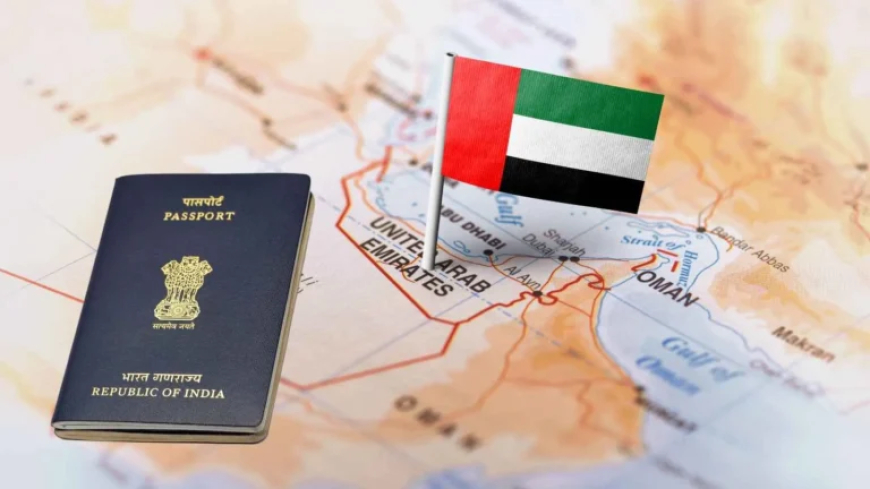UAE Sets Minimum Salary Rules for Visit Visa Sponsorship
The UAE has introduced new visit visa rules requiring residents to earn AED 4,000 to sponsor family, AED 8,000 for relatives, and AED 15,000 for friends, alongside new visa categories and humanitarian permits.

The United Arab Emirates has rolled out sweeping changes to its visit visa policy, introducing minimum salary requirements for residents who wish to sponsor family members, relatives, or friends. The new rules, announced by the Federal Authority for Identity, Citizenship, Customs and Port Security (ICP), are designed to tighten financial accountability while expanding visa options for professionals, entrepreneurs, and tourists.
According to the revised framework, residents must now earn at least AED 4,000 per month to sponsor immediate family members. Sponsorship for second- or third-degree relatives will only be allowed if the resident earns AED 8,000 monthly, while sponsoring friends will require a minimum income of AED 15,000. Officials explained that the thresholds are meant to ensure that sponsors are financially stable enough to support visitors during their stay, thereby reducing misuse of visas and easing pressure on public services.
Alongside the income requirements, the UAE has unveiled a number of new visa categories. These include permits for specialists in artificial intelligence, entertainment, and technology, as well as short-term visas for exhibitions, festivals, and cruise tourism. A humanitarian residence permit has also been introduced for widows, divorcees, and individuals unable to secure a sponsor, granting them legal stay for one year. In addition, a business exploration visa will be available for entrepreneurs seeking opportunities in the UAE, provided they can show financial solvency or prior business ownership. Truck drivers and workers in the transport sector will also benefit from revised single- and multiple-entry visas, but these will require sponsorship from licensed freight companies, as well as health insurance and financial guarantees.
Major General Suhail Saeed Al Khaili, Director General of the ICP, said the reforms were based on feedback from stakeholders and a study of global immigration trends. He emphasized that the new rules are meant to enhance transparency and strengthen the UAE’s position as a global hub for talent, investment, and tourism. “These regulations provide clarity and balance between the needs of residents and the country’s national interests,” he said.
For residents, the immediate impact is significant. Many expatriates earning modest salaries may no longer qualify to sponsor extended family or friends, a privilege that was widely used during holidays and family gatherings. For example, a worker earning AED 5,000 will still be able to bring a spouse or children but will fall short of the income level required to sponsor cousins or close friends. The highest threshold, AED 15,000 for friends, is expected to exclude much of the middle-income workforce, limiting sponsorship primarily to professionals and senior employees.
Reactions among residents have been mixed. Some welcome the clarity and discipline the rules bring, while others fear the new limits will make family reunions more difficult. Critics argue that the financial barriers could affect the country’s large expatriate population, particularly South Asian and African communities who traditionally sponsor relatives on visit visas. On the other hand, immigration analysts believe the move will streamline sponsorships and align them with global standards, while the introduction of new specialized visas will attract skilled workers and entrepreneurs.
The UAE’s private sector is expected to benefit from the reforms, particularly in tourism, business, and logistics. The business exploration visa could encourage new ventures, while the event visa makes it easier for global participants to join conferences, festivals, and exhibitions. Tourism operators also expect a boost from the cruise and vessel-based visa options.
The changes are part of a wider strategy across Gulf states to modernize immigration systems, balance demographics, and attract high-value talent. For the UAE, the policy reflects its long-term vision of sustaining economic growth while maintaining social balance. Whether the new income thresholds limit opportunities for some families or succeed in improving transparency, the reforms are set to reshape how millions of residents engage with the visit visa system starting this year.

 Israr Ahmed
Israr Ahmed